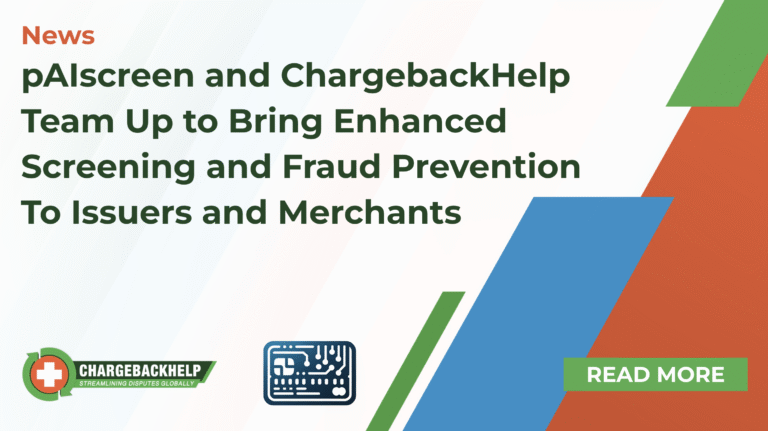How to Build Strong Chargeback Protection for Ecommerce

Why Ecommerce Merchants Are More Vulnerable to Chargebacks
Online transactions carry risk by default. Without a card in hand or a signature on file, proving the legitimacy of a purchase can be tricky. And when something goes wrong, like a shipping delay or a confusing charge on a statement, customers often contact their bank instead of the business. That opens the door to a chargeback.
Even worse, some customers file chargebacks after receiving the product, often claiming fraud when there was none. This type of first-party fraud is especially common in ecommerce. It’s frustrating, but not rare. That’s why strong chargeback protection is so important. It prevents disputes before they happen, while giving you tools to fight back when necessary.
Start with Prevention: Resolve Issues Before They Trigger Disputes
Prevention is the foundation of chargeback protection. The more pain points you can eliminate, the fewer chargebacks you’ll have to deal with.
Start by tightening your communication practices. Use order confirmations and shipping updates to keep customers informed. If your billing descriptor doesn’t match your store name, expect confusion. You can test billing language to make sure customers recognize your charges.
Refund policies should be clear, fair, and easy to find. If customers feel stuck or ignored, they’re more likely to contact their bank instead of your support team. Subscription merchants should go a step further and send proactive renewal reminders. Even small oversights can lead to major chargeback losses.
Use Alerts and Resolution Tools to Protect Transactions
Not every dispute can be prevented. That’s why alerts matter. These tools notify you when a cardholder files a dispute, giving you time to respond before it becomes a chargeback.
For example, Verifi CDRN gives you a small window to resolve a dispute before Visa turns it into a chargeback. Ethoca Alerts do the same thing on the Mastercard side, often within minutes of a dispute being filed.
Some merchants go further and automate refunds with Visa RDR. This tool uses predefined rules to resolve certain disputes the moment they are filed, keeping them from escalating.
Mastercom Collaboration works similarly. It offers a short window to review and resolve Mastercard disputes before they hit your account. All of these tools provide an opportunity to step in early, which can save you time, money, and processing headaches.
Representment Still Matters: Recover What You Can
When a chargeback does go through, merchants still have a chance to fight back. The process is called representment, and the goal is to submit compelling evidence that proves the transaction was legitimate.
You’ll need to show things like order confirmations, IP logs, delivery records, or customer emails. If that sounds like a lot of work, that’s because it is. Proven solutions like ChargebackHelp’s auto representment service handles much of the evidence collection and response formatting.
Merchants who skip representment leave money on the table. Even a partial recovery rate can have a major impact, especially if you’re dealing with high chargeback volumes.
Best Practices to Strengthen Chargeback Protection
There’s no one-size-fits-all plan, but these steps can help you build a more resilient approach.
Improve billing clarity
Your billing descriptor should be easy for customers to match with your store. Confusing descriptors often lead to unnecessary chargebacks.
Watch chargeback reason code trends
Frequent “item not received” claims may point to fulfillment gaps. “Unauthorized transaction” could mean your fraud filters need adjustment. You can view a full list of chargeback reason codes here.
Connect alerts to existing systems
Make sure chargeback alerts integrate with your CRM or order platform. The faster your response, the more likely you’ll resolve the dispute early.
Set a refund rulebook
Some disputes are better refunded than fought. Create clear rules for what gets refunded and what goes to representment.
Keep tabs on repeat fraud attempts
First-party fraud is rarely random. If the same customer triggers multiple chargebacks, flag it and act accordingly.
Ready to Build a Better Defense?
No merchant can prevent every dispute, but you can control how often those disputes escalate into chargebacks. If you’re ready to use alerts, automate responses, or take representment off your plate, reach out to our team. We’ll help you connect the right tools for your ecommerce setup so you can spend less time on chargebacks and more time fulfilling orders.
Why ChargebackHelp?
Our solutions simplify every step of the chargeback process from alerts and early resolution to automated representment. Whether you need to prevent first-party fraud, lower your dispute volume, or recover revenue, ChargebackHelp gives ecommerce merchants a smarter way to manage chargebacks. With direct connections to Visa, Mastercard, Verifi, and Ethoca, we offer the coverage and expertise you need to stay in control.
FAQs: How Ecommerce Merchants Can Strengthen Chargeback Protection
What causes most ecommerce chargebacks?
Common causes include unrecognized charges, delayed shipments, vague billing descriptors, and friendly fraud. Many of these are preventable with better communication and alert systems. ChargebackHelp helps merchants reduce exposure through early resolution tools and policy optimization.
How do chargeback alerts protect ecommerce businesses?
Alerts notify merchants when a dispute is filed, creating a window to issue a refund or resolve the issue before it becomes a chargeback. ChargebackHelp supports integration with all major alert providers so ecommerce merchants can act fast.
What is the best way to fight friendly fraud?
The key is strong evidence. Shipping logs, device data, and customer emails all help. Representment automation from ChargebackHelp simplifies this process, increasing your chances of success.
Are refunds better than chargebacks?
Yes. Refunds are cheaper, faster, and less damaging to your account. With alerts and predefined rules, ChargebackHelp helps merchants refund selectively without giving up too much revenue.
Can I automate my entire chargeback response?
In most cases, yes. With the right tools and integrations, you can automate alerts, evidence collection, and even response submission. ChargebackHelp offers automation options tailored to ecommerce operations.
How do I know if my business needs more chargeback protection?
If you’ve had a recent spike in chargebacks, if you sell subscriptions, or if your fraud filters feel outdated, it’s time to act. Contact ChargebackHelp for a free risk assessment and implementation roadmap.








